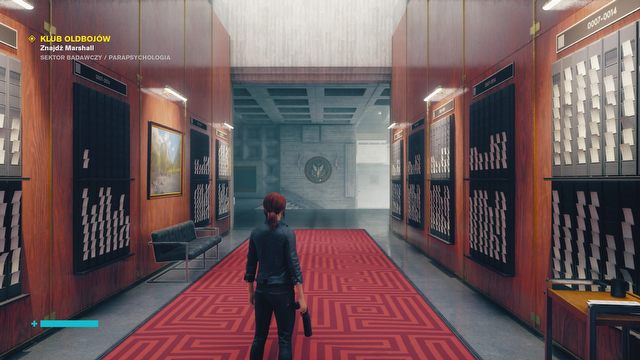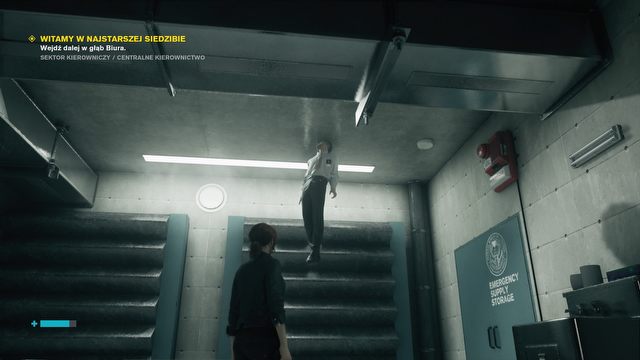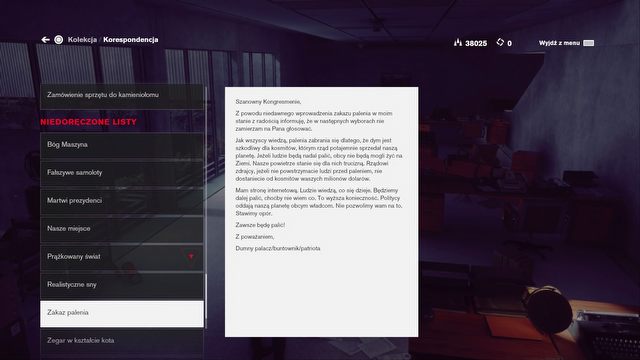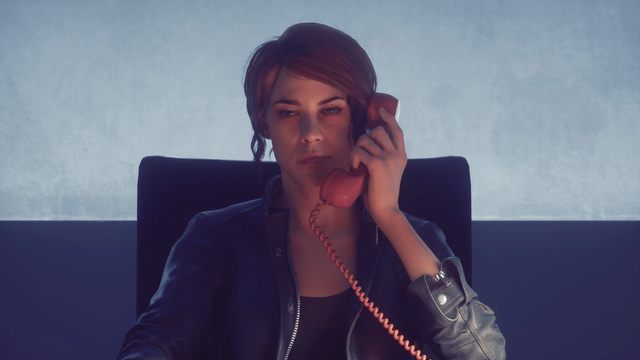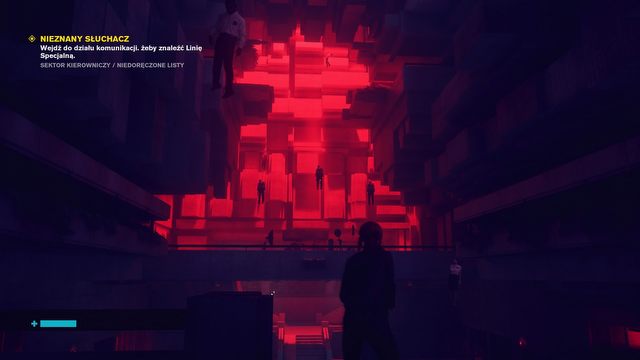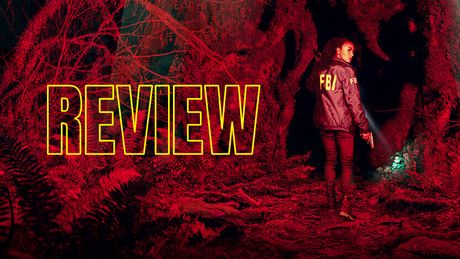If You Think Control is not Worth it – Think Again
The latest game by the creators of Max Payne and Alan Wake hasn't been hugely exciting before the release, which is a pity – because it's definitely more than just a solid shooter.
If you're asking what Control is, I'm not surprised. I can say this game was a vague, little dot on my radar for a while now — if it were not for one of my colleagues, who fell in love with the game after the E3, I probably still wouldn't give much damn about it. And that would be a mistake. Because it's not just some new action game from Max Payne's creators, a typical holiday time-filler, but something much more compelling.
- X-Files without Mulder, in the atmosphere of David Lynch's movies;
- the first game in which I read almost all the notes I found;
- Prey, but in TPP, less scary, and brighter;
- a game about superheroes with no leather skin and latex involved –
- the title of which doesn't really say anything unless you play it yourself;
- finally, a game that seems to be yelling "GIVE ME NEXT-GEN!"
Federal Bureau of Madness
- finely constructed, disturbing atmosphere;
- a decent story in a great setting;
- cool combat mechanics — throwing objects at enemies is super fun;
- good cut-scenes and vids;
- demanding optional bosses;
- some really gripping moments (Ashtray Maze <3);
- fantastic exploration that rewards inquisitive players;
- more than a dozen hours of the main thread completed with as much side quests.
- clinically unremarkable appearance of most locations; same goes for dialogues and animations of NPCs;
- poor optimization of the review copy on a regular PS4 screams "GIVE ME PS5!"
- a few other shortcomings (e.g. the game is very dark sometimes, but there's no flashlight; long loading screens).
Control does not waste time on unnecessary introductions and begins with a bang. A moment later, when we pick up a weapon (not just a gun, but a shape-shifting, multi-purpose servos weapon — more about that below), we will head the Federal Bureau of Control, and all its employees will address us as "director." Yes, a girl from the street becomes the head of a secret American institution just like that — and this is only the beginning of the unlikely events that will unfold during this adventure. I don't want to spoil anything, because discovering the next secrets of Control is just part of the fun. All you have to know is that we get to the HQ of the FBC in New York – which is also referred to as the Oldest Facility – in a very difficult moment: the institution has been attacked and paralyzed by a powerful, mysterious force – the Hiss. Our job is to regain control of the FBC, and to find out the cause of all this madness.
If I were to mention the one thing that made the greatest impression on me, it would be the atmosphere. Which is a cliche, but hear me out. You enter a spacious office room. All clinically white, bright, blinding lamps, solid desks and, of course, people. They levitate high above the ground, paralyzed. In the background, we can hear their quiet mumbling, reminiscent of white noise — some words, sometimes fragments of sentences; once quieter, once louder. Suddenly, poles of sharp, red light appear, and with them – enemies — people captured by the mysterious and sinister Hiss. Or rather, their grotesque versions – sometimes twisted, sometimes flying, but always angry and hostile. It makes quite an impression. As we travel through empty spaces with levitating office staff and strange babbling in the background, the feeling of walking a nightmare is undeniable.
Just so you're clear — Control is not scary in the regular sense. Sure, the atmosphere is very disturbing, so once or twice I startled in the chair, but it's far from your regular horror game. This game hits other notes — the atmosphere is reminiscent of Rosemary's Baby, a film in which most of the time everything seems fine, but we can just feel that something is VERY wrong.
It's impossible to talk about the atmosphere without the second biggest advantage of this game — its quaint universe. This is one of those stories where our world turns out to be something completely different than everyone thought. It reminded me of a spoof of the X-Files with Twin Peaks. While the plot isn't jaw-dropping, it's alright, and discovering the secrets of the Federal Bureau of Control is a lot of fun. It actually led me to a slight obsession — for the first time in any game, I read almost all the notes or documents that Control shares very generously with us. Contrary to appearances, the game world turns out to be very rich, and after the finale, it still has a lot of secrets to offer. This is also the perfect foundation for Control 2 — I only hope that Remedy goes for it. But let's go back to the beginnings.
Physics for A+
Meet Jesse Faden. Jesse is the director of the Federal Bureau of Control, wears a leather jacket and can levitate. Yeah, in Control, we're getting a few skills that would make the Avengers blush with envy. Flinging objects torn out walls (I recommend fire extinguishers — they explode beautifully upon impact), levitation, or lightning-fast evasions are the powers that make the game from Remedy perhaps the best sort-of-superhero game of 2019. True, the competition wasn't the strongest, practically limited to the average Marvel Ultimate Alliance 3, but so what? Jesse doesn't wear a tight outfit, but she's gaining more and more wicked skills that open up new options every now and then. Quite literally, because they allow to get to places that were initially inaccessible to us — in a typical metroidvania way.
The fun of using these powers is different, though — fast dodging is so obviously classic that you don't have to add anything else, levitation is a little meh and it has nothing on Anthem's flying, but control over the objects makes up for all the shortcomings. The realistic representation of physics in this game is an absolute masterpiece! First of all, we feel its full naturalness — grabbing a table will topple the chairs around it, and all the items on it will fall off. When we rip a fire extinguisher out of the wall and there is an enemy between us and it, the object will hit the enemy on the fly (first we pull the object to ourselves, and then we can fire it at any target).
Heavier items break away from the ground noticeably more slowly, so they feel like they weigh more and can hit several enemies at once — their bodies react to the hit extremely realistically, which is a rare sight in games. Thanks to all this, the feeling of ramming a monster possessed by the Hiss with a bulky office desk or a boulder is fantastic. I really almost spammed these attacks — it was so fun.
AN OBLIGATORY DOSE OF RPG
It's hard to imagine a modern action game without RPG elements, isn't it? Control maintains this trend — during the game, we discover new powers, and then we can upgrade them or our character with skill points. For example, levitation cannot only last a bit longer, but it can also allow you to deal damage to surrounding enemies by slamming into the ground after obtaining the skill.

